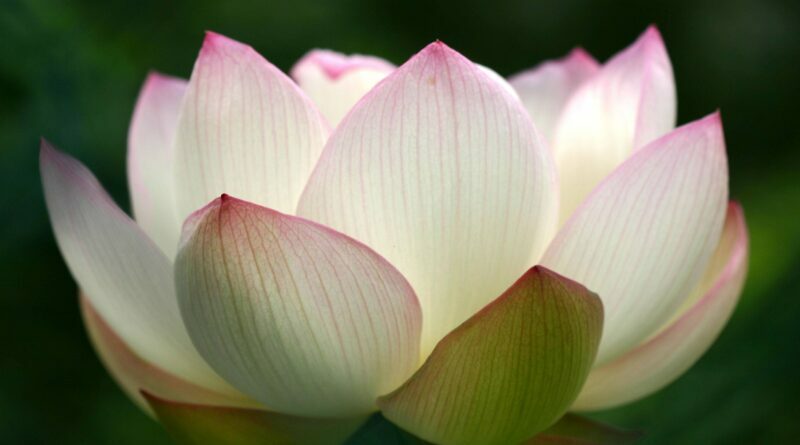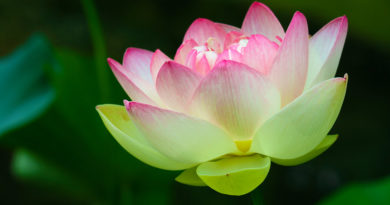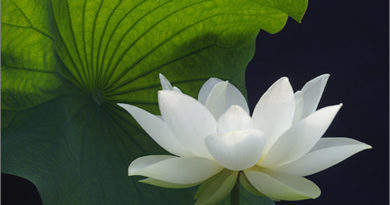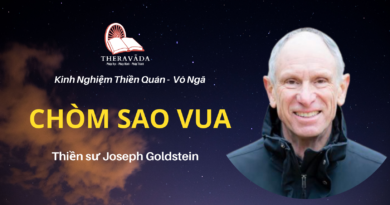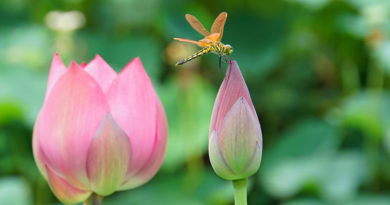Answers By Mr. S. N. Goenka: Society
-Why don’t we live in a state of peace?
Mr. S. N. Goenka: Because experiential wisdom is lacking. A life without wisdom from one’s own direct experience, is a life of illusion, which is a state of agitation, of misery. Our first responsibility is to live a healthy, harmonious life, good for ourselves and for all others. To do so, we must learn to use our faculty of self-observation, truth-observation.
-What is the point of seeking peace within when there is no peace in the world?
Mr. S. N. Goenka: The world will be peaceful only when the people of the world are peaceful and happy. The change has to begin with each individual. If the jungle is withered and you want to restore it to life, you must water each tree of that jungle. If you want world peace, you ought to learn how to be peaceful yourself. Only then can you bring peace to the world.
-Suffering, war and conflict are as old as history. Do you really believe in a world of peace?
Mr. S. N. Goenka: Well, even if a few people come out of misery, it is good. When there is darkness all around and one lamp has started giving light, it is good. And like this, if one lamp becomes ten lamps, or twenty lamps, the darkness will get dispelled here and there. There is no guarantee that the entire world will become peaceful, but as much peace as you can make yourself, that much you are helping the peace of the world.
-Do you have any views on issues such as hunger and nuclear war?
Mr. S. N. Goenka: These are very important issues in society; you can’t close your eyes and run away from them in the name of Vipassana or in the name of any meditation. As Buddha said, “One cannot practice Dhamma, one cannot practice meditation, if he is hungry.” So, this is a very important issue. Every war is harmful; nuclear war is much more harmful. But then just having an ideal aim of keeping society away from such wars will not help. Each individual has to come out of the tensions within. The tensions in society, the tension in the nation, the tension between nation and nation, individual and individual, are all because of the impurity in the minds of the individuals.
(Courtesy: International Vipassana Newsletter, June 1986 issue)
-How does Vipassana solve the problems of society?
Mr. S. N. Goenka: Society is after all, nothing but a group of individuals. To solve the problems of society, the problems of the individual must first be solved. We want peace in the world, yet we do nothing for the peace of the individual. How is this possible? Vipassana makes it possible for the individual to experience peace and harmony. Vipassana helps to solve the individual’s problems. This is how society begins experiencing peace and harmony. This is how the problems of the society begin to be solved.
-Isn’t society influenced by the actions of one another?
Mr. S. N. Goenka: Of course. We are influenced by the people around us and by our environment, and we keep influencing them as well. If the majority of people, for example, are in favour of violence, then war and destruction will occur, causing many to suffer. But if people start to purify their minds, then violence cannot happen. The root of the problem lies in the mind of each individual human being, because society is composed of individuals. If each person starts changing, then society will change, and war and destruction will become rare events.
-If Dhamma has to be lived in one’s personal life then how will happiness be achieved at the community level in society?
Mr. S. N. Goenka: These teachings will certainly prevail at the community level. In the first course a mere 14 people attended, but this was a great start for a country which had completely lost Vipassana. Those 14 turned into 24, then into 50 and then 100 and now there are many centres all over the world. The centre at Igatpuri which is the mother centre, Dhammagiri, now receives applications from 1000 – 2000 people per course while it can accommodate just 600 to 700 people. Vipassana is growing rapidly and a time will come, as it was in the past, where meditation centres will open in cities, towns and villages and the work will develop at the community level, just as gyms and akhadas are important in villages, towns and cities to keep the body fit and healthy.
-Why do you call your teaching an “art of living”? And how can meditation be used as a tool for creating a better society?
Mr. S. N. Goenka: The entire teaching of Buddha is an art of living. If one lives the life of sila, of morality, this itself is an art of living. But living an ethical life while having many negative reactions in the mind also makes one unhappy. So controlling the mind and purifying the mind—samadhi and pañña—along with sila, one lives a very peaceful and harmonious life. When one lives a life of negativity, one remains tense within and gives nothing but tension to others. When one is living a peaceful, harmonious life, one generates peace and harmony for others also. It is for this reason that Sayagyi used to call Buddha’s teaching an art of living, as a way of life, a code of conduct.
In my own life before meeting Sayagyi, I found the tension was so horrible that I remained miserable, and I made others miserable. Coming onto the Path, I found that I was much relieved. I started living a better life, which was more beneficial for the members of my family, for my friends and for society. So if an individual remains full of negativity, society suffers. If an individual changes for the better, it has a good effect on society.
-What role do you see for Vipassana meditators in the area of social action, such as helping others in the world—the poor, hungry, homeless, or sick?
Mr. S. N. Goenka: Helping others is absolutely essential for every Dhamma person. For someone who is meditating, of course the main aim is to purify the mind. But one indication that the mind is becoming purified is that the volition arises to help others. A pure mind will always be full of love and compassion. One cannot see people suffering all around and say, “I don’t care. I am working for my own liberation.” This sort of attitude shows a lack of development in Dhamma. If one is developing in Dhamma, then naturally, in whichever capacity, with whatever abilities one has, in whichever field one can serve, one should serve. But when you are serving people in different social fields, in a school or a hospital or some other institution, you may develop this madness, “Now that I have really purified my mind and am giving all of my time for serving people, the purification process will continue by itself. I should stop my morning and evening sittings because I am doing so much work now. I am doing such a great social service.” This is a serious mistake.
With real purity of mind, whatever service you give will be strong, effective and fruitful. Keep purifying your mind, keep examining whether your mind is really becoming purified, and keep serving people without expecting anything in return.
-Can people be involved in social issues and still devote time to doing Vipassana?
Mr. S. N. Goenka: “Devoting time to Vipassana” is only when you join a course like this for ten days. Thereafter, it is a part of your life. You may lead a very good life as a social worker—you are serving people—but you will serve people much better if you serve yourself. If you keep your mind pure and full of peace and harmony, then you will find that your service is so positive, so effective. But deep inside, if you remain agitated, there is no peace in you and then any service that you give will not be that effective.
(Courtesy: International Vipassana Newsletter, June 1986 issue)
-If we distract ourselves with meditation, aren’t we taking away from the energy we should be devoting to rectifying the rampant social ills on our planet?
Mr. S. N. Goenka: Vipassana meditation is for this purpose only. A Vipassana meditator does not become selfish, thinking “I am only working for my liberation, for my happiness.” As you progress on the path, and the mind becomes purer and purer, naturally the volition starts: “May more and more people get this wonderful technique, may more and more people come out of their defilements.” This love and compassion is a part of the technique, of the teaching of this technique. Don’t worry that you will run away from your responsibilities. You will perform your responsibilities much better than you did without Vipassana.
(Courtesy: International Vipassana Newsletter, October 2012 issue)
-Now there are many different Vipassana centers around the world but misery, struggles, wars, etcetera are increasing. Is there something wrong in Vipassana? Can’t Vipassana make the world peaceful? If we cannot stop wars, the future surely will be in ruins. What more can we do for the sake of world peace?
Mr. S. N. Goenka: If there is peace within each person, there is bound to be peace in the world. Unless there is peace within, you can’t expect peace in the world. Vipassana is teaching peace within the individual so that it spreads as peace in the world.
Without confusing your mind with all such questions, carry on meditating and see that you get the benefit yourself. If you get the benefit, others will also benefit. And this is how there will be peace. If more and more people practice Vipassana, there is greater chance of world peace. There can’t be world peace unless there is peace within individual human beings.
If more and more people practice Vipassana, if more and more individuals live a peaceful life, we are approaching closer to world peace.
The best thing is that those who have taken courses should continue to progress on the path. And those who have not should take a 10-day course and see the result. The result is always obvious. The result is always good. Keep on practicing yourself, and keep on helping others to develop on the path!
Instead of involving yourself in all kinds of questions, practice! Practice for your good. Practice for the good of others. Practice for the good of the whole country. Practice for the good of the whole world. Practice, practice, practice!
-What about corruption, which is increasing day by day?
Mr. S. N. Goenka: People have forgotten the law of nature. If these very people start observing the truth within themselves, it will become impossible for them to live a corrupt life.
-There is great turmoil in some parts of India and also violence all over the world. Can Vipassana play a role in relieving this?
Mr. S. N. Goenka: Vipassana is the only way to solve these problems, not only in India but throughout the world. Such violence arises where there are deep impurities such as anger, hatred, and animosity in the minds of the people, and on some excuse or other these negativities are manifested. If the mind is full of negativity, it will succumb to violence and harm others.
We all want peace in the world but how will it happen? No amount of sermons, punishment, or violent opposition can solve this problem. The only way is for each individual’s problems to be tackled with Vipassana.
After all, society is made up of individuals. If you forget the individual and want to change the whole world, you will not be successful. If the whole jungle has withered and you want to see it green and blooming, you have to water the root of every tree. If each tree becomes green, the entire jungle will become green. Similarly, you have to deal with individuals; although it takes time, there is no other way. Vipassana is the only solution.
See that Vipassana spreads. We must have compassion, not hatred, for these miserable people—the terrorists and those who use violence. They need Vipassana. If they get Vipassana, they will certainly change for the better.
People have changed through coming to Vipassana courses, and this is bound to happen because it is the nature of Dhamma. And when the individual changes, society will change. If even ten percent of society practise Vipassana and manifest their purity, goodwill, and mettā, they will start to attract more and more people, and the whole society will start changing. This is the only solution.
-You were speaking earlier of the laws of nature and, right now, many people are observing that nature itself is in trouble. Some are concerned that much of nature is, in fact, dying, and many parts of our natural world are experiencing great suffering. Many people feel a great urgency about responding to that suffering and sometimes they feel anger towards those people who are causing it. What do you recommend? How might they respond to the suffering that they see—both in nature and in human society—with equanimity?
Mr. S. N. Goenka: There are two aspects to this problem. One aspect is polluting the whole natural atmosphere, for example by different kinds of chemicals which harm the vegetation, the life of animals, birds and so on. Of course, any sensible, wise person must stop such pollution. If nature gets polluted, nature’s harm is secondary. We are getting harmed. If the whole atmosphere becomes poisonous, how can people, who have mainly made it poisonous, live a healthy life? They have to live in this atmosphere, and they are spoiling it. So it’s not that they should be kind to nature—I would say, better be kind to themselves. We don’t understand what we are doing. Nature may be polluted now and later on again may become fresh again—after, say, some hundreds of years. Meanwhile, what have we done to ourselves?
So people should think about themselves. I want everyone to be selfish, but selfish in a proper sense. Right now, people don’t know where their real self-interest lies, and they harm themselves. People need to be compassionate toward themselves.
Chemical poisoning is one kind of pollution that is harming people. But another, bigger pollution, happens whenever our minds generate a defilement. That defilement is nothing but a vibration—an unhealthy vibration. It first it defiles the atmosphere within ourselves, and then it starts permeating the atmosphere around us. If I become angry, I am the first victim of my anger. I am the first person who is harmed by it. The second victim will be affected a little later, but first, I’ll be harmed. Then, after I am harmed by this anger, the vibration that goes out from me pollutes the whole atmosphere around me. If there are more and more angry people, how can you expect people to live peacefully in that atmosphere? It’s impossible.
In a family, if there is one angry person, all the family members will become very unhappy. And if all of them are angry, it is a hell. What sort of life is that? But this is what is happening! People forget that when they generate negativity they are not only harming others, they are harming themselves. But if they learn Vipassana, this technique which nature has given us, they can come out of this pollution. See how peacefully they live now, how harmoniously! They are giving peace and harmony to the atmosphere. Anybody who comes in contact with that atmosphere will start feeling peace and harmony.
So that pollution is, to me, is more dangerous. For ages we have been doing this. Saintly people who experience the truth, come and say, “Oh, no, don’t do this.” But still we do. Because we do not understand that we are harming ourselves.
It is the same for the external pollution—people should understand that they are harming ourselves. A factory owner who is polluting the atmosphere with chemical gasses is not only harming others, he is harming himself also, living in that atmosphere. He can’t have a separate atmosphere for himself. But one who is polluting the atmosphere at the mental level is suffering much more. The moment he starts generating anger, he is its first victim, and becomes a very miserable person.
So the atmosphere outside us is bad, as you say, and something has to be done. But when you said that people become angry when they see the pollution, that is not helpful. They have started producing another pollution with their anger. Anger cannot solve the problem. You must have compassion for other people. They are ignorant, they don’t know what they are doing. We have to be firm and very stern, and very strong in opposing them, but deep inside there must be only love and compassion, no hatred. Hatred and anger cannot solve any problem.
-Vipassana plays an important role in social change. You have been carrying out its propagation since 1969. However, casteism, communalism and sectarianism are constantly on the rise. Would you like to suggest something that could eliminate these evils?
Mr. S. N. Goenka: There is only one way, ekāyano maggo, and that way is to change each individual. When you want to change society you have to change the individual. After all, society is nothing but a mass of individuals. Each man matters most. And when you talk of man, who is nothing but the combination of mind and matter, mind matters most.
So we should help people understand that since mind matters most, each individual has to change the behaviour pattern of his or her own mind in order to come out of the misery resulting from all this casteism, sectarianism and communalism. People must be shown how they are generating such negativity because of these evils of society.
When you learn Vipassana and look inside yourself you understand, “Look, as soon as I generate hatred I start harming myself. Before harming anyone else, look, I start suffering.”
People don’t like to suffer, but they don’t realize that every time they generate negativity in their minds they are harming themselves. The first victim is oneself when one generates negativity. If more and more people begin to realize this they will start coming out of suffering. However, it takes time.
India is a country with such a large population; you should not expect the entire country to have changed in only these last twenty-five or twenty-six years. But I am very hopeful because a beginning has been made. For the last 2,000 years this wonderful law of nature, the Dhamma, has been lost to us. Fortunately the neighbouring country maintained it in its pristine purity from generation to generation, although among very few people. Now we have got it in its pure form.
Now I am sure that the results we are beginning to see will have an impact on society. If a whole jungle has withered away and you want to see it green again, each individual tree has to become green. Each tree must be watered properly at its root. When each individual tree becomes healthy, the entire jungle will become healthy. If individuals become healthy, society becomes healthy. Vipassana is doing its own job. It may take time, that can’t be helped. But the results are coming and I am quite hopeful it will change society.
-Although there is an emphasis on secularism in India there are many castes, creeds and faiths. Would you like to say something about resolving the problems that arise out of these?
Mr. S. N. Goenka: Vipassana solves all such problems. One cannot be said to be a high- or low-grade person just because one has come out of the womb of a woman of a particular caste. Dhamma does not discriminate in that way. A human being is a human being whether of this or that caste or community. If one is established in Dhamma this is wonderful, and others have to pay respect. But if somebody is of very high caste but does not practise Dhamma, this person deserves pity.
At a Vipassana centre everyone works together and understands that it is only the Dhamma that makes one high or low. The problems of caste or community dissolve. People from all communities, religious traditions and castes sit together, stand in line and eat together. They forget whether they are rich or poor, highly educated or uneducated, from high or low caste. Vipassana is the only solution, not only for this country, but also for the world.
a-It strikes me that what you are saying is something that all political leaders should hear
Mr. S. N. Goenka: Well, it starts from there. Every good or bad thing starts from the top and percolates through the society. If these people remain bad, the whole society has to suffer, and can’t get the truth. But if the leaders start realizing that they are more or less owning the destiny of the whole hu- man society, then they should live a better life, a good life, which can give a good example to the people—an example not just of power, but purity. Purity is the greatest power. If they learn how to keep their minds pure, they won’t pollute the atmosphere around. And if they start doing that, it will certainly be so helpful to the whole human nation.
-Kindly enter politics to establish Dharma in India and solve the present problems.
Mr. S. N. Goenka: I have read in the newspapers that politics should be kept away from Dharma. I am totally against this view. Politics must be full of Dharma. The trouble is that the country has taken Dharma to mean sectarianism. Politics must be free from sectarianism, not from Dharma. If there is Dharma in politics, it will be wonderful. The whole country will become so pure, so happy, so peaceful.

